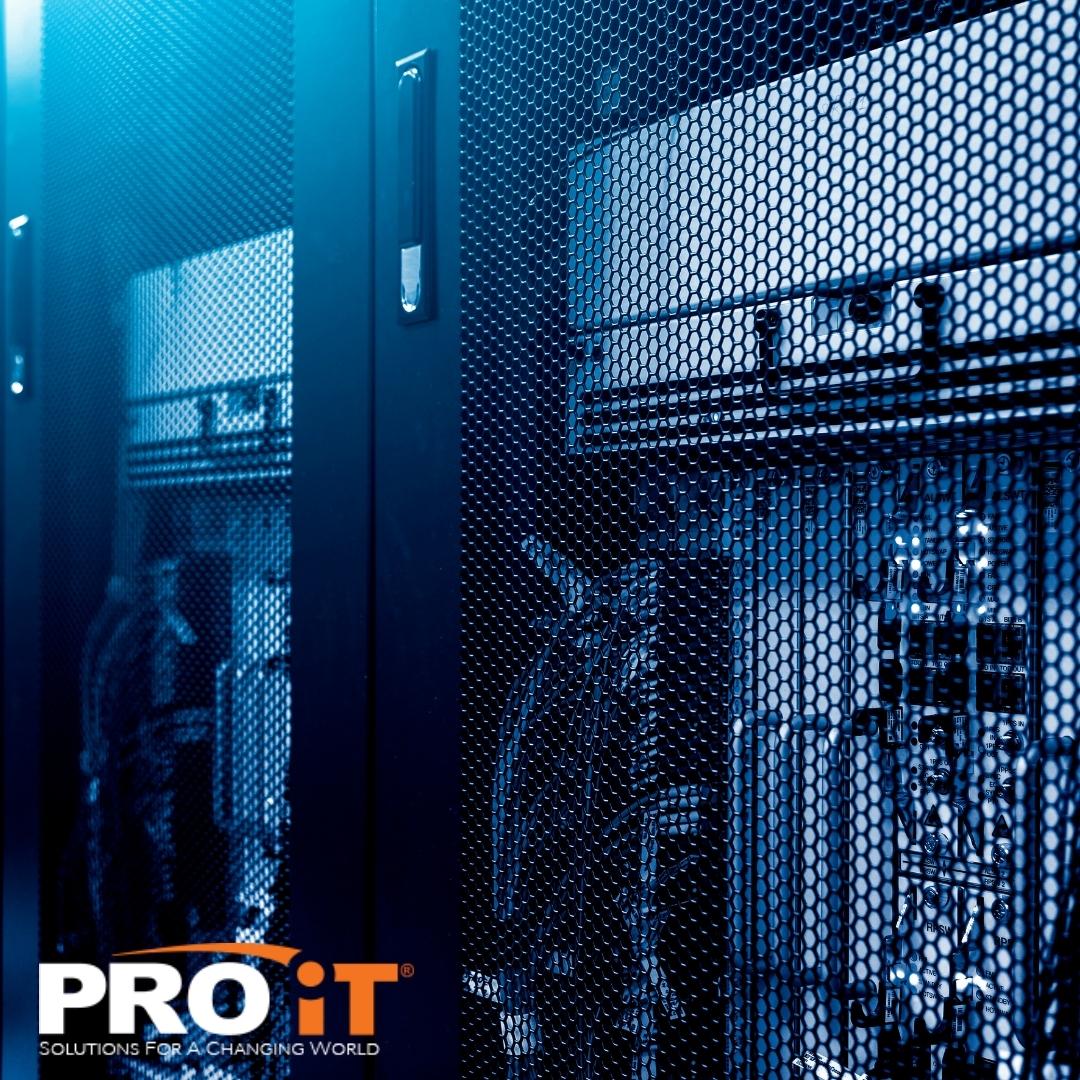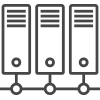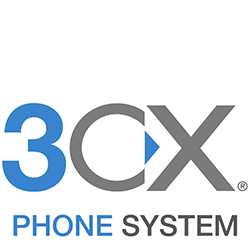At its most basic, a data centre is a physical facility that organizations use to house their critical applications and data. A data centre’s design is based on a network of computing and storage resources that enable the delivery of It services. The key components of a data centre design include routers, switches, firewalls, storage systems, servers, and application-delivery controllers.
Data Centre
24x7 Technical Support
Call us today at
+61 2 8724 3333
Solutions for a Changing World

We’re 5 star rated for client satisfaction and trust


I’ve been working with the team at ProIT for over 5 years. During this time they are consistently professional and go above and beyond to ensure that our IT systems are fully functional. I can call with at a moment’s notice and they are on hand to help out, and this includes working in conjunction with our Global IT team to ensure that our ANZ business has the best IT support available.
Rebecca Elson
EA & Office Manager
William Grant & Sons Australia Pty Ltd

For the past nine years Bekir, Ireena and the team at Pro-IT have been incredible sponsors of the foundation and the multiple Children’s Charities we support. As a platinum partner across our three premier annual events, Pro-IT have made a substantial and sustained financial contribution to improving the lives of children in need.
In addition to these needed funds, Pro-IT have embraced their sponsorship and engaged with participants at our Golf Day in February with a catered and in-house staffed marquee offering legendary macaroons and strawberries, taken the naming rights of an actual horse race at Rosehill, and the provision of caps for all participants (in excess of 600 people) at our Regatta.
This commitment shows their commitment to going above and beyond which has helped us improve our events and ultimately assisted in their growth.
The ASX / Refinitiv Charity Foundation has raised in excess of $33m over 20 years and without the support and contribution of Pro-IT, this would not have been possible.
David Brocklehurst OAM
General Manager (retired)
ASX / Refinitiv Charity Foundation
Security
Data centre security is a critical concern for any business that relies on IT services. There are a variety of threats that can compromise data centre security, from natural disasters to malicious attacks.
Likewise, data breaches are one of the biggest threats to a data centre. These breaches can lead to significant losses for businesses and affect thousands of users.
Therefore, proper security measures must be in place to protect data and keep it safe. This includes things like firewalls, intrusion detection systems, and physical security measures.
Correspondingly, to secure data in a data centre, it is important to implement robust security protocols and measures.

Infrastructure
A data centre infrastructure usually consists of a network of computers and storage systems that enable the smooth running of an organisation’s operations.
Also, data centre infrastructure management (DCIM) is the integration of information technology (IT) and facility management disciplines to centralize the management of an organization’s data centre resources.
Likewise, as one of the most essential components of any modern business, a data centre facility is essential for storing, managing, and processing large amounts of data.
Moreover, it is essential for businesses to have a reliable data centre infrastructure in place in order to ensure that their critical data and applications are always available and accessible.
Equally, computing resources in a data centre are extremely important for modern businesses, as they allow companies to store and analyze massive amounts of data at high speeds.

Technician Responsibilities
A data centre technician’s primary responsibilities revolve around overseeing the day-to-day operations of the data centre. This involves ensuring that all systems are running optimally and that any issues or problems that arise in the data centre are addressed quickly and efficiently.
In addition, a data centre technician’s main job is to maintain the safety and efficiency of all the systems in the data centre.

Network Services
Data centre network services play an important role in ensuring the performance and reliability of modern data centres. These services are designed to provide high-performing and low-latency connectivity between different components within a typical data centre, allowing for fast processing of data and improved efficiency.
Therefore, data center networking is a specialized field that requires a deep understanding of network architecture and design.
In addition to this, there is a wide variety of networking equipment used in data centres, from simple switches and routers to more complex devices such as load balancers and firewalls.
Additionally, network systems are an essential element of any data centre, providing the infrastructure that allows data to be transmitted and stored in a safe and reliable manner.

Data Centre Australia
As Australia continues to grow as a major hub for technology, it is becoming increasingly important to have high-quality data centres Australia-wide to support this industry.
After all, a data centre solution is a platform that helps manage, store, protect and analyze an organization’s data.
Also, data centres are increasingly turning to energy efficiency measures to reduce their environmental impact and operating costs.

Operations
Data centre operations must maintain a delicate balance between ensuring availability and maximizing efficiency, while also ensuring the safety and security of sensitive data.
Therefore, in order to meet these challenges, data centre operators must have a comprehensive understanding of the data centre environment and its various components, including power, cooling, and IT infrastructure.
Of course, operating systems play an essential role in a data centre, as they determine how resources and devices are managed, controlled, and allocated.
Furthermore, access controls are an important element in any data centre, as they enable administrators to control who has access to their systems and which actions they can perform.

Data Centre Industries
FAQs
Data centre is important because it helps organizations manage, store, and process data. It also ensures the security and availability of data. Data centres also help organizations save money by reducing the need for physical space and equipment.
Data centre infrastructure is the hardware and software that supports the operation of a data centre. This includes servers, storage devices, networking equipment, power and cooling systems, and management tools.
Moreover, a data centre can be divided into three main sections: the compute section, the storage section, and the networking section. The computing section is where you’ll find the servers that do the processing work. The storage section is where you’ll find the hard drives (or solid-state drives) that store your data. And the networking section is where you’ll find switches and routers to move data between devices.
There is a big difference between a server and a data centre. A server is just one computer, while a data centre is made up of many computers and other infrastructure. Servers are usually used to host websites or applications, while data centres are used to store data or power entire businesses. Data centres are often much bigger than servers, and they require more electricity and cooling to keep all of the computers running properly.
Data centres are important to the future of computing because they allow for the efficient and secure storage and processing of large amounts of data.
In addition, data centres allow companies to store and access their data remotely, which can save businesses time and money. They also provide a secure environment for data processing, which is essential for businesses that handle sensitive information.
The main difference between a data centre and a cloud is that a data centre is a physical facility where information is stored and processed, while a cloud is a virtual environment where resources are accessed over the internet.
Data centre networking is the process of connecting various types of electronic equipment in a data center so that they can communicate with each other. This usually includes routers, switches, firewalls, storage devices, and servers. Data centre networking is also sometimes referred to as routing and switching.
A typical data centre houses anywhere from a few dozen to several thousand servers. The exact number depends on the size and needs of the organization running the data centre. A smaller organization might only need a few hundred servers to support their business, while a larger organization could require several thousand servers to handle their workload.
There are many different types of data centre services, but they all generally involve the provision of a physical space where server and networking equipment can be housed, as well as the associated power, cooling, and connectivity infrastructure. In some cases, data centre service providers may also offer additional services such as managed hosting or colocation. Data centre services are typically provided by specialist firms that have experience in operating these facilities, and which can offer a high level of reliability and uptime.
Data centres are important to businesses because they allow for the efficient storage and management of data.
Additionally, businesses rely on data centres to store and manage their data in an efficient and secure manner. By using a data centre, businesses can improve their performance and optimise their operations. Additionally, data centres provide businesses with the ability to scale up or down as needed, ensuring that they have the resources they need to meet their needs.
Data centre refers to a facility where an enterprise stores, manages, and processes its data. A colocation centre is a commercial space where enterprises can rent space to house their IT equipment and receive climate control, power, connectivity, and physical security. Each has its own set of pros and cons that must be considered when making a decision about where to store your data.






















































